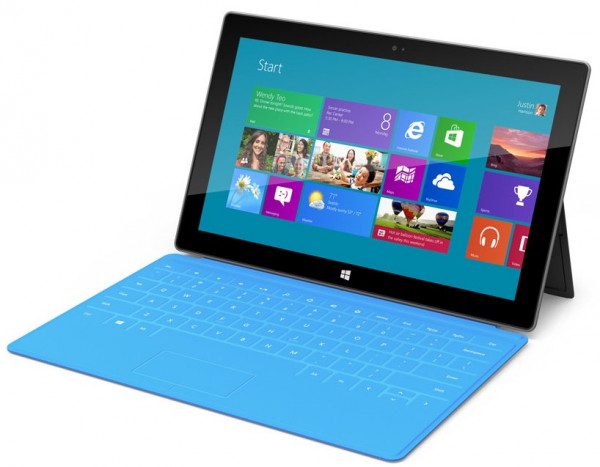Microsoft makes its own hardware and software rules, and that’s a good thing

Acer CEO JT Wang has been quoted as saying Microsoft's Surface could have a negative impact on the Windows ecosystem, frustrate OEMs, and potentially have far-flung negative consequences. Why is there a problem when Microsoft wants to set a standard in both hardware and software? Windows Phone, Surface, and Signature represent a generational shift in Microsoft’s thinking related to operating systems, hardware, and the intended software experience. This is the Microsoft that should surface (no pun intended) from every interaction with one of their products, and who’s to say that’s not a good thing?
When Microsoft announced Surface, I immediately saw great potential for people like me who need advanced software to perform real tasks that require an intensive use of resources. But at the same time, Microsoft Surface gave a glimpse of what’s to come: Microsoft can actually make hardware to its own specifications and design. It is an approach that has been slowly coming to the front with Microsoft which began three years ago, before the debut of the first Windows Phone. Working closely with HTC, Microsoft could make sure the hardware performed in such a way that its software looked better.
Windows Phone paved the way
The first attempt at serious mobile hardware standards, however, wasn't ideal. Windows Phone 7+ wasn’t designed for modern hardware like 720p displays, or quad- or even dual-core CPUs, not to mention 1GB of RAM. So by Windows Phone 7.5, the hardware wasn’t up to 2012 levels, with quad-core smartphones like the Samsung Galaxy S III or HTC One X. The battle was lost at the hardware level, but at least Windows Phone 8 wants to correct that mistake.
An example of good execution in the hardware space is Google, which through its Nexus line (manufactured by Samsung and ASUS at the moment) sets a standard on how the Android software and hardware should work together. More important is the fact these devices act as a benchmark for all other Android smartphone and tablet manufacturers. To be honest, I respect that position. People have a choice when they want to buy a tablet or smartphone and want an authentic experience as intended by the people behind the software...even though hiccups have been known to happen.
Microsoft dictates that OEMs like Nokia, Samsung or HTC don’t "customize" Windows Phone, which is where they got it right from my point of view. Any OS customization is a step back in the way of updates first of all, and it also sends a mixed message to the user through an inconsistent software experience. Every Windows Phone device should offer the same user experience, and it should be good all across the board.
By choosing not to let Windows Phone device manufacturers customize the operating system, Microsoft is doing all the heavy lifting as they’re the only ones to blame in case the software isn’t as good as the user wants it to be. At the same time, if it’s good it will benefit Microsoft in the short and long run alike. Not only could they have a better image, but their products will gain more credibility and in the end all parties involved benefit from it. You can add exclusive applications to Windows Phone 7.5 like Nokia does, but you can’t change its functionality for the worse, which again can be viewed as a good thing from this perspective. Is it ideal? No, but it eliminates OEM interference which hasn't always benefited Microsoft.
A "genuine" Windows Experience
It is no secret that new laptops and desktops running Windows that come from major OEM partners like Hewlett Packard, Dell, ASUS, Acer or Lenovo come with preinstalled software that Microsoft doesn’t include in a standard Windows installation. This was the whole reason Microsoft Signature came to be, Microsoft wanted to mitigate the negative OEM experience by stripping out bloatware and providing an experience as Microsoft intended.
Of course, only a partner feeling insecure of its capabilities would assume that Microsoft wants to take away its profits. The idea behind Signature and Surface have a far greater meaning than simply blocking cash from Windows OEMs. Microsoft gets to set a standard to which other manufacturers can adhere if they want to sell a Windows-based product, and that's not bad for competition.
Microsoft wants to make sure that the Surface hardware is good enough, and that the experience exudes quality and is a proper one to carry the Microsoft and Windows badges. Greater intervention from Microsoft could benefit all parties in the long run, as it ensures the software is good on its own, the hardware is good on its own, and they are good together.
Apple does it all --both hardware and software-- and it only means that there’s an obvious closed environment, and Microsoft can uphold stricter standards for Surface without having things turn fruity.
If limiting the possibility of underpowered hardware, and shrinking bloat become hallmarks that users expect of new Windows devices moving forward, why would an OEM disagree?
